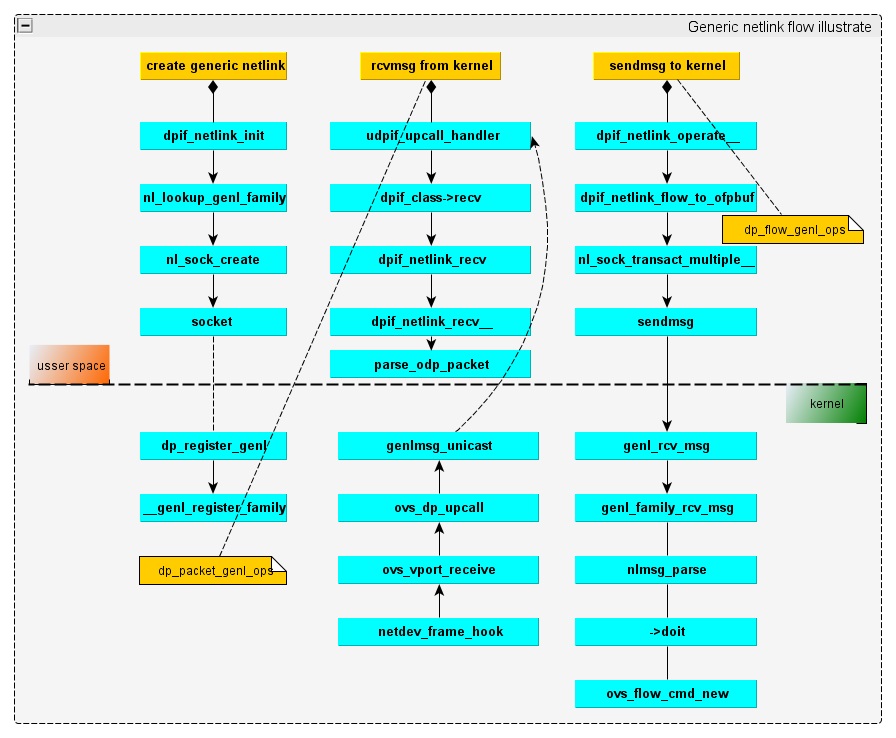1
2
3
4
5
6
7
8
9
10
11
12
13
14
15
16
17
18
19
20
21
22
23
24
25
26
27
28
29
30
31
32
33
34
35
36
37
38
39
40
41
42
43
44
45
46
47
48
49
50
51
52
53
54
55
56
57
58
59
60
61
62
63
64
65
66
67
68
69
70
71
72
73
74
75
76
77
78
79
80
81
82
83
84
85
86
87
88
89
90
91
92
93
94
95
96
97
98
99
100
101
102
103
104
105
106
107
108
109
110
111
112
113
114
115
116
117
118
119
120
121
122
123
124
125
126
127
128
129
130
131
132
133
134
135
136
137
138
139
140
141
142
143
144
145
146
147
148
149
150
151
152
153
154
155
156
157
158
159
160
161
162
163
164
165
166
167
168
169
170
171
172
173
174
175
176
177
178
179
180
181
182
183
184
185
186
187
188
189
190
191
192
193
194
195
196
197
198
199
200
201
202
203
204
205
206
207
208
209
210
211
212
213
214
215
216
217
218
219
220
221
222
223
224
225
226
227
228
229
230
231
232
233
234
235
236
237
238
239
240
241
242
243
244
245
246
247
248
| #include <stdio.h>
#include <stdint.h>
#include <stdlib.h>
#include <errno.h>
#include <unistd.h>
#include <poll.h>
#include <string.h>
#include <fcntl.h>
#include <sys/types.h>
#include <sys/stat.h>
#include <sys/socket.h>
#include <sys/types.h>
#include <signal.h>
#include <linux/genetlink.h>
#include "../pub/genl_ins_pub.h"
/* Generic macros for dealing with netlink sockets. Might be duplicated
* elsewhere. It is recommended that commercial grade applications use
* libnl or libnetlink and use the interfaces provided by the library
*/
#define GENLMSG_DATA(gh) ((void *)(NLMSG_DATA(gh) + GENL_HDRLEN))
#define GENLMSG_PAYLOAD(gh) (NLMSG_PAYLOAD(gh, 0) - GENL_HDRLEN)
#define NLA_DATA(na) ((void *)((char*)(na) + NLA_HDRLEN))
#define MESSAGE_TO_KERNEL "Hello World!"
struct nl_sock
{
int fd;
uint32_t pid;
int protocol;
uint32_t seq_id;
int family_id;
const char *name;
};
/* memory for netlink request and response messages
* - headers are included
*/
struct gennl_ins_msg {
struct nlmsghdr nh;
struct genlmsghdr gh;
char user[256];
};
static struct nl_sock instance = { .fd = -1,
.name = GENL_INSTANCE_NAME };
int create_nl_sock(struct nl_sock *nl_sock, int protocol);
int lookup_gennl_family_id(struct nl_sock *nl_sock);
int gennl_interaction(struct nl_sock *nl_sock);
int main(char **argv, int argc)
{
do {
if (create_nl_sock(&instance, NETLINK_GENERIC) < 0) {
break;
}
if (gennl_interaction(&instance)) {
break;
}
} while (0);
if (instance.fd > 0) {
close(instance.fd);
instance.fd = -1;
}
return 0;
}
int create_nl_sock(struct nl_sock *nl_sock, int protocol)
{
int retval, rcvbuf = 1024 * 1024;
struct sockaddr_nl local, remote;
nl_sock->fd = socket(AF_NETLINK, SOCK_RAW, protocol);
if (nl_sock->fd < 0) {
fprintf(stderr, "create socket errno: %d\n", errno);
return errno;
}
nl_sock->protocol = protocol;
nl_sock->seq_id = 1;
if (setsockopt(nl_sock->fd, SOL_SOCKET, SO_RCVBUFFORCE,
&rcvbuf, sizeof rcvbuf)) {
printf("setting %d-bytes socket receive buffer failed, errno %d\n",
rcvbuf, errno);
}
/* Connect to kernel (pid 0) as remote address. */
memset(&remote, 0, sizeof remote);
remote.nl_family = AF_NETLINK;
remote.nl_pid = 0;
if (connect(nl_sock->fd, (struct sockaddr *) &remote,
sizeof(remote)) < 0) {
retval = errno;
fprintf(stderr, "connect sock fail, errno %d\n", errno);
goto error;
}
if (lookup_gennl_family_id(nl_sock)) {
retval = -1;
goto error;
}
return 0;
error:
if (nl_sock->fd >= 0) {
close(nl_sock->fd);
nl_sock->fd = -1;
}
return retval;
}
int lookup_gennl_family_id(struct nl_sock *nl_sock)
{
struct gennl_ins_msg request, reply;
struct nlattr *nl_na;
struct sockaddr_nl nl_address;
int length;
/* Step 1. prepare request msg */
/* netlink header */
request.nh.nlmsg_type = GENL_ID_CTRL;
request.nh.nlmsg_flags = NLM_F_REQUEST;
request.nh.nlmsg_seq = nl_sock->seq_id;
request.nh.nlmsg_pid = getpid();
request.nh.nlmsg_len = NLMSG_LENGTH(GENL_HDRLEN);
/* generic netlink header */
request.gh.cmd = CTRL_CMD_GETFAMILY;
request.gh.version = 0x2;
/* assemble attr */
nl_na = (struct nlattr *) GENLMSG_DATA(&request);
nl_na->nla_type = CTRL_ATTR_FAMILY_NAME;
nl_na->nla_len = strlen(GENL_INSTANCE_NAME) + 1 + NLA_HDRLEN;
strcpy(NLA_DATA(nl_na), GENL_INSTANCE_NAME);
request.nh.nlmsg_len += NLMSG_ALIGN(nl_na->nla_len);
/* Step 2. send request msg */
memset(&nl_address, 0, sizeof(nl_address));
nl_address.nl_family = AF_NETLINK;
length = sendto(nl_sock->fd, (char *) &request, request.nh.nlmsg_len,
0, (struct sockaddr *) &nl_address, sizeof(nl_address));
if (length != request.nh.nlmsg_len) {
fprintf(stderr, "%s sendto fail, %d\n", __func__, length);
return -1;
}
/* Step 3. receive reply msg */
length = recv(nl_sock->fd, &reply, sizeof(reply), 0);
if (length < 0) {
fprintf(stderr, "%s recv fail, %d\n", __func__, length);
return -1;
}
/* Step 4. validate&parse reply msg */
if (!NLMSG_OK((&reply.nh), length)) {
fprintf(stderr, "family ID request: invalid message\n");
return -1;
}
if (reply.nh.nlmsg_type == NLMSG_ERROR) {
fprintf(stderr, "family ID request: receive error\n");
return -1;
}
nl_na = (struct nlattr *) GENLMSG_DATA(&reply);
nl_na = (struct nlattr *) ((char *) nl_na + NLA_ALIGN(nl_na->nla_len));
if (nl_na->nla_type != CTRL_ATTR_FAMILY_ID) {
fprintf(stderr, "family ID request: receive nla type(%d) not match %d\n",
nl_na->nla_type, CTRL_ATTR_FAMILY_ID);
return -1;
}
nl_sock->family_id = *(__u16 *) NLA_DATA(nl_na);
printf("%s genric netlink id %d\n",
GENL_INSTANCE_NAME, nl_sock->family_id);
return 0;
}
int gennl_interaction(struct nl_sock *nl_sock)
{
struct gennl_ins_msg request, reply;
struct nlattr *nl_na;
struct sockaddr_nl nl_address;
int length;
memset(&request, 0, sizeof(request));
memset(&reply, 0, sizeof(reply));
request.nh.nlmsg_len = NLMSG_LENGTH(GENL_HDRLEN);
request.nh.nlmsg_type = nl_sock->family_id;
request.nh.nlmsg_flags = NLM_F_REQUEST;
request.nh.nlmsg_seq = 60;
request.nh.nlmsg_pid = getpid();
request.gh.cmd = INSTANCE_C_ECHO;
nl_na = (struct nlattr *) GENLMSG_DATA(&request);
nl_na->nla_type = INSTANCE_A_MSG;
nl_na->nla_len = sizeof(MESSAGE_TO_KERNEL) + NLA_HDRLEN;
memcpy(NLA_DATA(nl_na), MESSAGE_TO_KERNEL, sizeof(MESSAGE_TO_KERNEL));
request.nh.nlmsg_len += NLMSG_ALIGN(nl_na->nla_len);
memset(&nl_address, 0, sizeof(nl_address));
nl_address.nl_family = AF_NETLINK;
length = sendto(nl_sock->fd, (char *) &request, request.nh.nlmsg_len,
0, (struct sockaddr *) &nl_address, sizeof(nl_address));
if (length != request.nh.nlmsg_len) {
fprintf(stderr, "%s sento return %d, expect %d\n", __func__,
length, request.nh.nlmsg_len);
return -1;
}
length = recv(nl_sock->fd, &reply, sizeof(reply), 0);
if (length < 0) {
printf("%s recv error %d\n", __func__, length);
return -1;
}
if (!NLMSG_OK((&reply.nh), length)) {
fprintf(stderr, "%s recv invalid nlmsg\n", __func__);
return -1;
}
length = GENLMSG_PAYLOAD(&reply.nh);
nl_na = (struct nlattr *) GENLMSG_DATA(&reply);
printf("kernel replied: %s\n",(char *)NLA_DATA(nl_na));
return 0;
}
|

